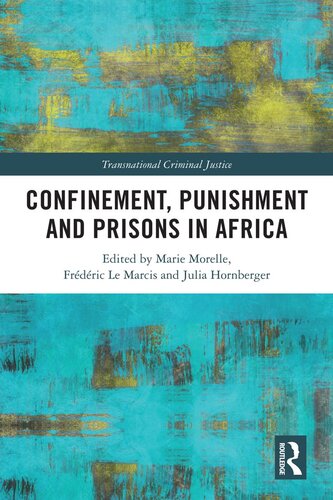

Most ebook files are in PDF format, so you can easily read them using various software such as Foxit Reader or directly on the Google Chrome browser.
Some ebook files are released by publishers in other formats such as .awz, .mobi, .epub, .fb2, etc. You may need to install specific software to read these formats on mobile/PC, such as Calibre.
Please read the tutorial at this link: https://ebookbell.com/faq
We offer FREE conversion to the popular formats you request; however, this may take some time. Therefore, right after payment, please email us, and we will try to provide the service as quickly as possible.
For some exceptional file formats or broken links (if any), please refrain from opening any disputes. Instead, email us first, and we will try to assist within a maximum of 6 hours.
EbookBell Team

4.1
10 reviewsThis interdisciplinary volume presents a nuanced critique of the prison experience in diverse detention facilities across Africa.
The book stresses the contingent, porous nature of African prisons, across both time and space. It draws on original long-term ethnographic research undertaken in both Francophone and Anglophone settings, which are grouped in four parts. The first part examines how the prison has imprinted itself on wider political and social imaginaries and, in turn, how structures of imprisonment carry the imprint of political action of various times. The second part stresses how particular forms of ordering emerge in African prisons. It is held that while these often involve coercion and neglect, they are better understood as the product of on-going negotiations and the search for meaning and value on the part of a multitude of actors. The third part is concerned with how prison life percolates beyond its physical perimeters into its urban and rural surroundings, and vice versa. It deals with the popular and contested nature of what prisons are about and what they do, especially in regard to bringing about moral subjects. The fourth and final part of the book examines how efforts of reforming and resisting the prison take shape at the intersection of globally circulating models of good governance and levels of self-organisation by prisoners.
The book will be an essential reference for students, academics and policy-makers in Law, Criminology, Sociology and Politics.